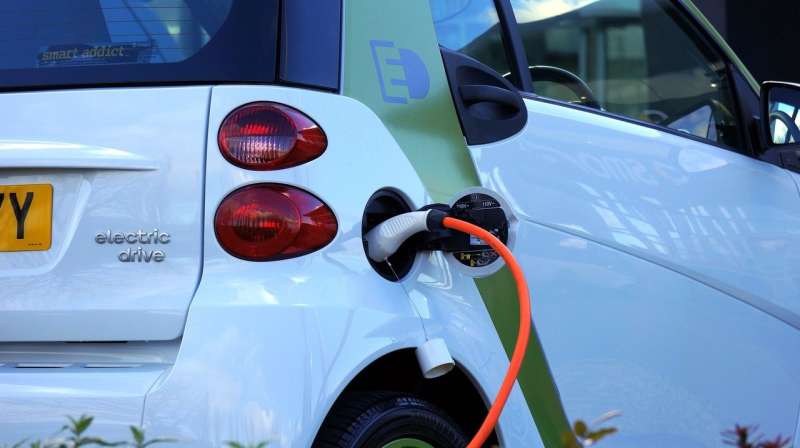Study finds that social justice and health issues impact electric vehicle uptake

A new study led by the University of Cambridge and based on public attitudes expressed in 36,000 Facebook posts, has found that consumer uptake of electric vehicles (EVs) can be boosted by promoting the social justice and health aspects of the technology.
The researchers found that effective communication of social and health benefits of EV ownership can be a motivating factor for influencing higher EV uptake.
The study, published in the journal Renewable and Sustainable Energy Reviews, analyzed Facebook postings in the United States related to EVs, using machine learning based on a PESTLE (Political, Economic, Social, Technological, Legal and Environmental) framework that examines the intersection of various words and phrases.
"Social media offers a treasure trove of information to better understand how the public views the energy transition from carbon-emitting internal combustion engine to EVs," said study co-author David Reiner from Cambridge Judge Business School.
Reiner and his collaborators used machine learning and social network analysis to identify via Facebook posts what aspects people valued in electric vehicles, and found that social justice, clean air, better health and a shift toward EVs becoming a service industry emerged as key themes.
The social justice theme was quite pervasive in the researchers' findings. One important discourse that shaped EVs' social justice and welfare dimensions was centered around the idea that 'We all can benefit from more electric vehicles', as this links to environmental benefits like cleaner air, less pollution, climate change mitigation, and better health for all. There was also broad agreement on the need for state support to make EVs more affordable.
"While governments around the world have launched aggressive targets for EVs, increasingly through regulatory measures rather than direct subsidies, there has been little academic research into the drivers of EV adoption," said Reiner. "This new study helps fill that knowledge gap, and can be a useful tool for energy policymaking in this vital area."
Breaking down the PESTLE framework, the study found that Facebook posts relating to Political aspects were most related to EV tax and subsidies; posts on the Economy focused on consumer fees and EV market expansion; the Social dimension centered on job creation, investment and clean air; Technology posts centered around charging and batteries; while Legal and Environmental posts looked mostly at climate change and EV-related sustainability discussion.
The 36,000 Facebook public posts on EVs that were analyzed, all posted in 2020, generated a text corpus of 600,000 words or terms that formed the data for the study's topic modeling.
As car manufacturers consider the potential for EVs as a subscription-based service, the study also underlines the importance of understanding how EVs are now being adopted at a community level as this will influence the future design of subscription-based and shared ownership schemes.
EV sales exceeded 2.1 million globally in 2019, with 90% of sales in China, Europe and the U.S., the study observes, with sales of all-electric light-duty vehicles in the U.S. growing from zero in 2010 to 242,000 in 2019.
More information: Ramit Debnath et al, Political, economic, social, technological, legal and environmental dimensions of electric vehicle adoption in the United States: A social-media interaction analysis, Renewable and Sustainable Energy Reviews (2021). DOI: 10.1016/j.rser.2021.111707



















